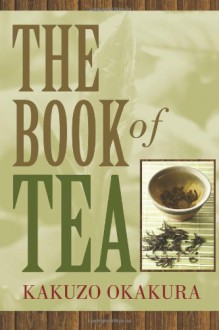That a nation should construct one of its most resonant national ceremonies round a cup of tea will surely strike a chord of sympathy with at least some readers of this review. To many foreigners, nothing is so quintessentially Japanese as the tea ceremony--more properly, "the way of...
show more
That a nation should construct one of its most resonant national ceremonies round a cup of tea will surely strike a chord of sympathy with at least some readers of this review. To many foreigners, nothing is so quintessentially Japanese as the tea ceremony--more properly, "the way of tea"--with its austerity, its extravagantly minimalist stylisation and its concentration of extreme subtleties of meaning into the simplest of actions. The Book of Tea is something of a curiosity: written in English by a Japanese scholar (and issued here in bilingual form) it was first published in 1906, in the wake of the naval victory over Russia with which Japan asserted its rapidly-acquired status as a world-class military power. It was a peak moment of Westernisation within Japan. Clearly, behind the publication was an agenda, or at least a mission to explain. Around its account of the ceremony The Book of Tea folds an explication of the philosophy, first Taoist, later Zen Buddhist, that informs its oblique celebration of simplicity and directness--what Okakura calls, in a telling phrase, "moral geometry". And the ceremony itself? Its greatest practitioners have always been philosophers, but also artists, connoisseurs, collectors, gardeners, calligraphers, gourmets, flower-arrangers. The greatest of them, Sen Rikyu, left a teasingly, maddeningly simple set of rules: "Make a delicious bowl of tea; lay the charcoal so that it heats the water; arrange the flowers as they are in the field; in summer suggest coolness; in winter, warmth; do everything ahead of time; prepare for rain; and give those with whom you find yourself every consideration." A disciple remarked that this seemed elementary. Rikyu replied, "Then if you can host a tea gathering without deviating from any of the rules I have just stated, I will become your disciple." A Zen reply. Fascinating. --Robin Davidson
show less

